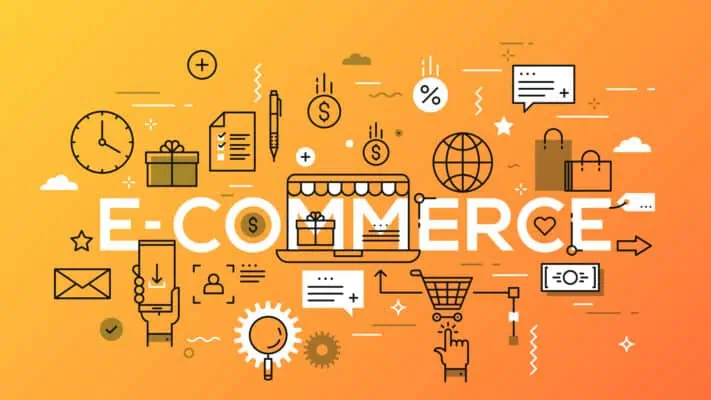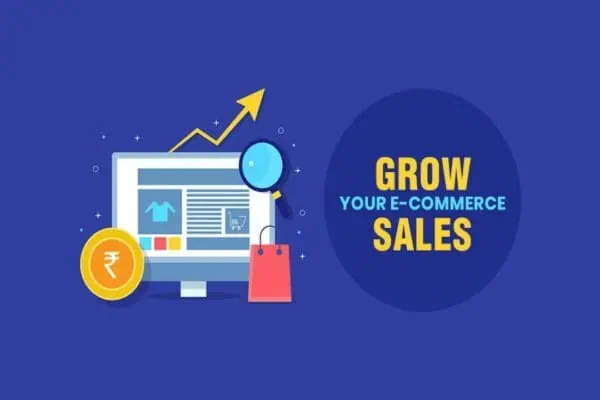How you can work better from home by Starting an Ecommerce Business in 2025
Ecommerce Business as we step into 2025, the landscape of ecommerce business continues to evolve, providing exciting opportunities for individuals looking to start a business from the comfort of their homes. With the rise of technology and changing consumer habits, starting an ecommerce business has never been more feasible. This article will guide you through the essential steps to launch your own online store, the costs involved, business models to consider, and how to grow your ecommerce business effectively and make much money.
What is the Best Business Idea for Starting an E-commerce Business in 2025?
In early 2025, the best business idea for starting an e-commerce venture is creating an online course that teaches valuable skills. With over 28 million ecommerce websites, the demand for educational content is skyrocketing. This type of business lets you work from home while providing a platform for new business owners to learn how to start building their own successful ecommerce business. You can start small and gradually scale up, using strategies to increase ecommerce sales and keep your business afloat.
By focusing on a niche market, you can create a business online that not only captures attention but also generates money. To build your online store, utilize ecommerce platforms like Amazon stores and start marketing your products effectively. This new business approach allows you to make money online and thrive in a competitive landscape. Follow a guide on how to start your ecommerce business in 2024, and watch your business flourish over the months for your business journey ahead.

Key Factors to Consider in Your Online Business Idea
Before you dive into the world of ecommerce, it’s crucial to choose a business idea that aligns with your interests and market needs. Consider factors such as your target audience, the demand for specific products, and your unique selling proposition. A successful ecommerce business idea should not only resonate with you but also have the potential to generate profit. Researching good ecommerce business ideas can provide insights into what products or services are trending in 2025. Identifying gaps in the market, understanding consumer preferences, and analyzing competitor strategies will guide you in formulating a strong business plan.
Trends Influencing Profitable Ecommerce Business Ideas in 2025
The ecommerce industry is influenced by various trends that can dictate which business ideas are most viable. Sustainability, for instance, has become a significant factor for consumers, prompting many to seek eco-friendly products. Additionally, the rise of personalized shopping experiences and the use of AI technology to enhance customer service have created a demand for businesses that can leverage these advancements. Keeping an eye on trends in social commerce, mobile shopping, and the integration of augmented reality in product showcasing can help you identify profitable ecommerce business ideas. By aligning your business concept with these trends, you position yourself for success in 2025 and beyond, also make money more.
How to Validate Your Ecommerce Business Idea
Once you have a product idea, validating it is essential to ensure its market viability. Start by conducting surveys and gathering feedback from potential customers to understand their needs and preferences. Utilizing online marketplaces or platforms can help you gauge interest in your product before you fully commit. Running a small pilot campaign or creating a landing page to collect email leads can also provide insights into demand. By validating your ecommerce business idea, you can minimize risks and make informed decisions about your business direction.
What is the Cost to Start an Ecommerce Business from Scratch?
Starting an e-commerce business from scratch can vary significantly in cost, depending on the scale and type of products you choose to offer. Whether the business sells physical goods or digital products, builders often need to invest in website development, inventory, and marketing to effectively grow your business. For a new online business, it’s essential to find the right niche or ecommerce business in amazon stores that aligns with your skills and market demand.
One of the most profitable ways to build a business today is through online platforms, allowing businesses of all sizes to reach wider audiences without the overhead costs of a brick-and-mortar business. The total cost to start an online business can range from a few hundred to several thousand dollars, depending on your strategy. To keep the business viable, continual investment in marketing your business is crucial for the success of your business as you expand your customer base.
Ultimately, the business requires careful planning and execution to build your business effectively. Ecommerce lets entrepreneurs start selling today with minimal upfront costs compared to traditional ventures. Starting an ecommerce is a strategic move for those looking to capitalize on the digital economy and create a sustainable income stream.

Breakdown of Initial Costs for Starting an Online Store
Understanding the cost to start an ecommerce from scratch is vital for aspiring business owners. Initial expenses typically include setting up your ecommerce website, which may involve domain registration, hosting fees, and website design. Additionally, costs related to inventory management, product sourcing, and marketing should be factored in, and looking for a Private Dropshipping Agent for sourcing and fulfilling orders. Depending on your business model, if you choose to start a dropshipping business, upfront inventory costs may be significantly lower. It’s important to create a detailed budget outlining these expenses to ensure you can launch your online store successfully.
Ongoing Expenses to Consider for Your Ecommerce
Beyond initial costs, ongoing expenses are crucial to consider as you establish your ecommerce. These may include monthly website maintenance fees, payment processing fees, shipping costs, and marketing expenses. Regularly updating your ecommerce website to improve user experience and SEO can also incur costs. Additionally, if you plan to hire employees or freelancers for customer service or marketing, these labor costs should be included in your budget. Being aware of these ongoing expenses will help you manage your finances effectively as your business grows.
How to Minimize Costs While Starting Your Ecommerce Business
Starting a business without breaking the bank is possible with strategic planning. Utilizing free or low-cost ecommerce platforms can drastically reduce initial expenses. Many beginners opt for platforms that offer user-friendly tools to build their online store and don’t need for extensive technical skills. Additionally, focusing on organic marketing strategies, such as social media promotion and content marketing, can help you gain visibility without incurring hefty advertising costs. Collaborating with influencers or leveraging affiliate marketing can also provide a cost-effective way to promote your ecommerce products.
How to Start Selling Products Online Business in 2025?
The best way to start an online venture is by identifying a niche that suits your interests and market demand. Establish a company that focuses on delivering unique products or services. Consider launching a business using social media platforms to reach a wider audience. Choosing the right ecommerce model, such as dropshipping or print-on-demand, can streamline operations and minimize initial costs, making it easier to kickstart your online selling journey.
Steps to Launch an Ecommerce Store Successfully
Launching an ecommerce store requires careful planning and execution. Begin by creating a comprehensive business plan that outlines your goals, target market, and operational strategies. Next, choose a memorable business name that reflects your brand and resonates with your audience. Register your business and ensure you comply with any relevant legal requirements. Once your online store is set up, add your product listings, optimizing them with high-quality images and compelling descriptions. Finally, launch your website with a solid marketing strategy in place to drive traffic and start generating sales.

Choosing the Right Platform for Your Online Business
Selecting the right platform for your ecommerce is vital for success. Popular options include Shopify, WooCommerce, and BigCommerce, each offering unique features tailored to different business needs. When choosing, consider factors such as ease of use, scalability, payment options, and integrations with other tools. The right platform will allow you to manage your ecommerce shop efficiently, ensuring a seamless shopping experience for your customers.
Tips for Listing Your First Products Online
When listing your first products online, it’s important to create an appealing presentation. Use high-resolution images to showcase your products, as visuals play a crucial role in online shopping. Write detailed descriptions that highlight the features and benefits of each item, and don’t forget to include keywords that improve SEO. Listing products competitively priced while providing value through promotions or bundles can also attract potential buyers. Ensuring a smooth checkout process will enhance customer satisfaction and increase the likelihood of repeat sales.
What are the Most Profitable Ecommerce Business Models in 2025?
The most profitable e-commerce business models include subscription services, which provide consistent revenue through recurring payments. Another lucrative model is the direct-to-consumer (DTC) approach, allowing brands to build strong relationships with customers while retaining higher margins. Additionally, dropshipping remains a popular business to start, as it requires minimal upfront investment and offers the flexibility to test various product niches. Lastly, integrating social commerce into traditional e-commerce strategies has proven effective in reaching younger audiences, driving engagement and sales.
Understanding Dropshipping and Its Profitability
Dropshipping is one of the most popular and profitable ecommerce, particularly. This model allows you to sell products without holding inventory, as suppliers handle storage and shipping. This significantly reduces your upfront costs and risks associated with inventory management. By carefully selecting reliable suppliers and focusing on niche products, you can build a successful dropshipping business that generates steady revenue.
Benefits of Selling on Amazon Stores for Beginners
For those looking to start an online business quickly, selling on Amazon stores offers numerous benefits. With millions of active users, Amazon provides a vast marketplace that can give your products significant exposure. The platform also takes care of logistics, allowing you to focus on marketing and customer engagement. Furthermore, Amazon’s tools for sellers can help you analyze sales data and optimize your listings to increase visibility, making it one of the best ecommerce options for beginners.
Exploring Subscription-Based Ecommerce Models
Subscription-based ecommerce models are gaining popularity as consumers increasingly seek convenience and personalized experiences. Offering subscription boxes tailored to specific interests, such as beauty products, fitness gear, or gourmet foods, can create a steady stream of recurring revenue. This model not only enhances customer loyalty but also allows for predictable income, making it a smart choice for those looking to build a sustainable e-commerce business for 2025.
How to Grow Your Ecommerce Business from Home?
To successfully grow your ecommerce business from home, start by establishing a strong online presence. Utilize social media platforms to engage with your audience and showcase your products. Implement effective SEO strategies to improve your website’s visibility in search engines, driving organic traffic to your site.
Next, focus on enhancing customer experience by providing excellent service and easy navigation. Consider utilizing email marketing campaigns to keep your customers informed about promotions and new products.
Finally, analyze your sales data regularly to identify trends and opportunities for growth, ensuring your ecommerce business remains competitive.

Effective Marketing Strategies for Your Online Store
To grow your e-commerce business, implementing effective marketing strategies is essential. Start by utilizing email marketing to nurture leads and convert them into customers. Social media platforms are also powerful tools for reaching your target audience; consider running ads or creating engaging content that encourages sharing and interaction. Search engine optimization (SEO) is vital for increasing organic traffic to your e-commerce website. Collaborating with influencers or bloggers in your niche can further boost your brand visibility and credibility.
Leveraging Social Media to Increase Sales
Social media has become an indispensable part of ecommerce marketing. By creating a strong presence on platforms like Instagram, Facebook, and Pinterest, you can showcase your products and connect with potential customers. Engaging with your audience through interactive posts, contests, and behind-the-scenes content can foster community and loyalty. Additionally, utilizing social media advertising can target specific demographics, increasing the likelihood of sales and conversions.
How to Analyze and Improve Your E-commerce Business Performance
Regularly analyzing your e-commerce business performance is crucial for ongoing success. Utilize analytics tools to monitor traffic, sales, and customer behavior on your e-commerce website. By understanding which products are performing well and identifying areas for improvement, you can make informed decisions that drive growth. Gathering customer feedback is also essential; it can provide insights into areas where you can enhance the shopping experience and optimize your offerings. Continuous improvement will help your e-commerce business thrive in a competitive market.

Private Agent for Dropshipping Success